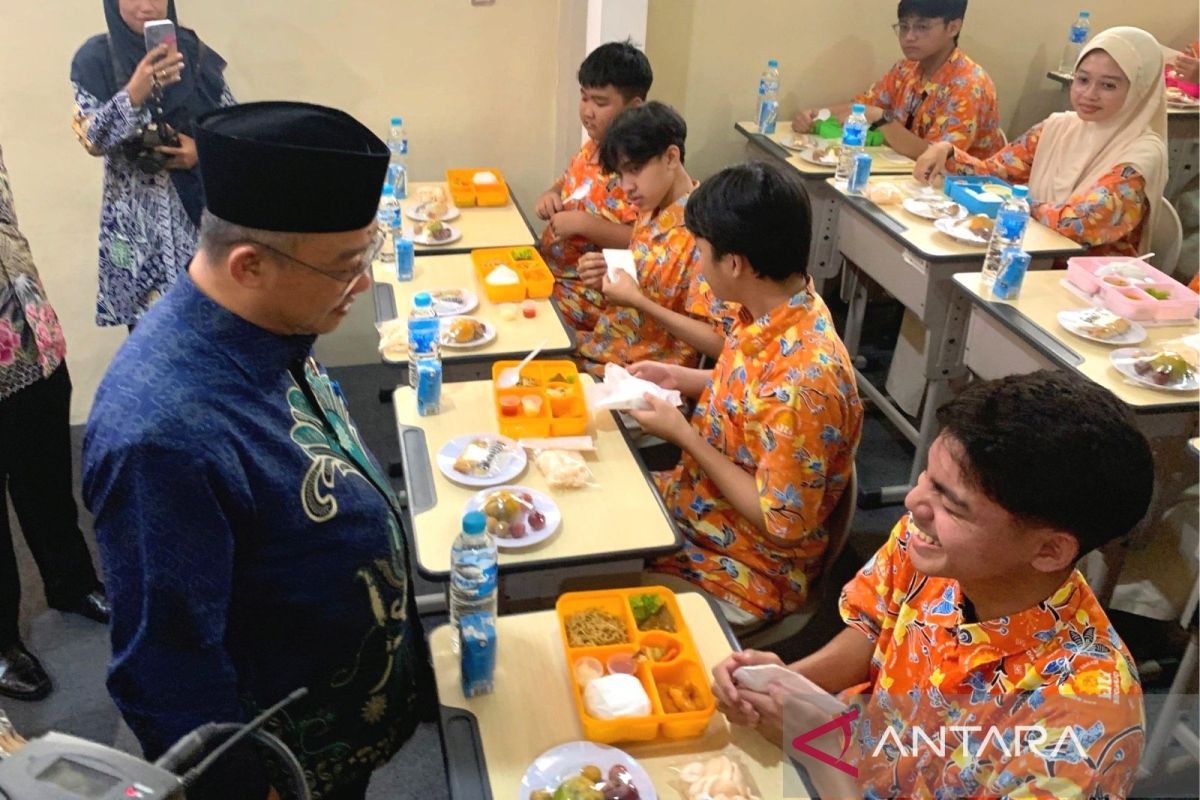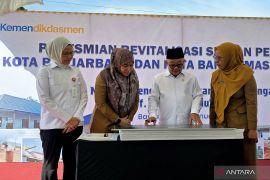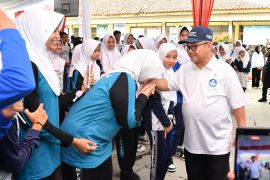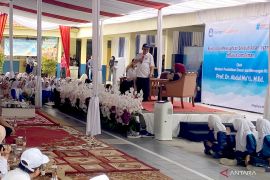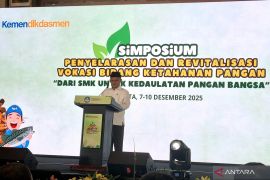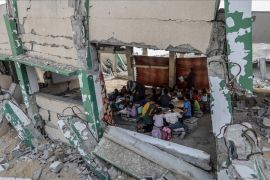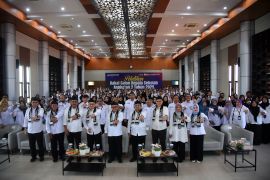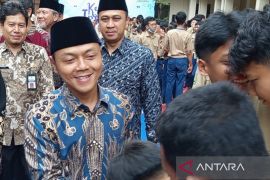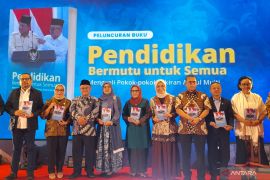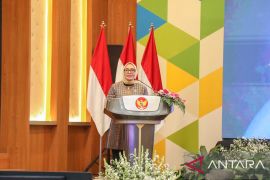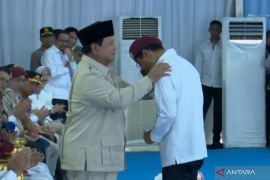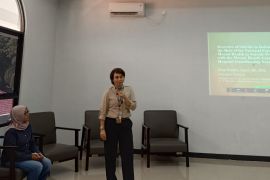During a recent tour of schools in Palembang, South Sumatra, Mu’ti demonstrated his commitment to understanding the ground-level issues facing the nation's educational system, just 11 days after joining the Red and White Cabinet led by President Prabowo Subianto.
During his visit to Palembang, Mu’ti launched the National Teachers' Month, with its commemoration in November. This breakthrough aims to show appreciation for teachers who educate the young generation for the nation's future.
He also emphasized that technology, such as artificial intelligence (AI), cannot replace the role of teachers in providing knowledge and becoming role models for students.
Mu’ti realizes that teachers are an important asset in producing superior human resources in the future. Hence, it is necessary to improve their quality through three important aspects.
Speaking in connection with the first aspect related to teacher certification, he drew attention to the fact that not all teachers in Indonesia have an academic degree of Diploma 4 (D4) or Bachelor (S1). Hence, Mu’ti vowed that his side would help teachers obtain the degree through scholarship or educational assistance programs.
The second aspect is enhancing teachers' personality and pedagogical, social, and professional competence.
Mu’ti said these four competencies could be fostered, including through the Teacher Professional Education (PPG) program, by incorporating guidance counseling and value education to prospective teachers.
The third aspect is improving teachers' welfare. According to the minister, the quality of teachers is determined by their welfare. Mu’ti confirmed that his side is committed to enhancing the teachers' welfare in Indonesia.
By paying attention to these three aspects, the minister is confident about the quality of Indonesian teachers, which can influence the quality of the future generation.
Character education
In a dialogue with teachers at the Muhammadiyah 3 Palembang Vocational School (SMK), Mu’ti highlighted the issue of character development and instilling moral values in students at school.
He stated that character education is not merely the responsibility of certain subject teachers. All teachers play a role in instilling moral values in students.
This effort is not only limited to formal education but also involves non-formal education through a community-based approach.
This approach emphasized strengthening communication between schools and parents to support the development of students' character in schools, one of which is through a parenting program.
The parenting program aims to build cooperation between schools and parents to instill moral values and character in students.
The effort to develop a non-formal approach to student character education is demonstrated by the plan to establish a Directorate of Non-Formal Education catering to the cooperation between schools, parents, and the community.
Teacher competence is also considered important, including the ability in education counseling and moral value education. The education process in the classroom is not only limited to the transfer of knowledge from teachers to students but also to strengthening students’ character.
Teachers need to understand the character of each student to detect a change in behavior and take immediate action.
The ability of teachers to master character-strengthening material needs to be improved along with the increasingly complex problems involving students, ranging from bullying, narcotics, and online gambling to student gangs that lead to criminal behavior.
Unfinished homework
The government still has a lot of homework to fix the education system, especially at the elementary and secondary levels.
Several policies in the education system that have also become the focus of the public comprise the zoning system, re-implementation of the National Examination (UN), the implementation of the Merdeka Curriculum, unequal access to education, low education participation rates, management of education funds, and teachers' welfare.
Unequal access to education is a major problem in primary and secondary education, with a gap in access between urban and rural communities and in western and eastern Indonesia.
Data from the Ministry of Education, Culture, Research, and Technology in 2022-2023 shows that the gross participation rate of children in early childhood education (PAUD) only reached 45.87 percent. Of the total 17.7 million children aged 3-6 years in Indonesia, only around 8.1 million have accessed PAUD services.
In fact, expanding universal access to PAUD services is one of the indicators of the Sustainable Development Goals (SDGs).
Meanwhile, the dropout rate based on the 2022 Education Statistics data by Statistics Indonesia (BPS) shows one in 1,000 residents drop out of elementary school, 10 in 1,000 residents drop out of junior high school, and 12 in 1,000 residents drop out of high school.
This phenomenon shows that some children did not participate fully in education and were forced to drop out due to poverty-related reasons. This may be caused by other levies outside school tuition that have been exempted and burdening students and parents.
To this end, the ministry is currently conducting studies and absorbing the aspirations of various parties related to continuing policies from the previous government.
The minister promised to conduct a theoretical academic study from education experts, organizers, and policymakers to address various fundamental problems.
Currently, the ministry only manages three percent of the education fund from the total 20 percent education budget in the state budget. The rest is divided into several ministries, including transfers to regions of 11 percent in the form of Special Allocation Funds (DAK) and General Allocation Funds (DAU).
This means that regional policies also determine the progress of primary and secondary education. Hence, the regional government should also prioritize the quality of education to support the realization of the Golden Generation in 2045.
Related news: Govt outlines four dimensions of AI competency in education
Related news: Teacher salary hike of Rp2 mln to one-time basic wage approved
Editor: Rahmad Nasution
Copyright © ANTARA 2024
